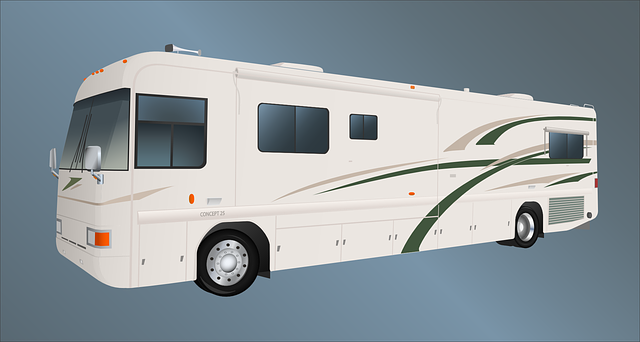When selecting an RV battery, opt for a Sealed Lead Acid (SLA) model for its reliability, ease of maintenance, and enhanced safety features. These batteries offer a high energy density, can withstand deep discharges, and deliver consistent performance throughout their long lifespan. For those who frequently use their RV systems over extended periods, SLA batteries are a practical and cost-effective choice for powering your off-grid adventures. Regular maintenance, including checking the battery's voltage, ensuring it's fully recharged after trips, keeping terminals clean, and storing the battery in a cool, dry place, will help maintain its health and longevity. By following these practices, you can ensure that your RV battery is always ready for your next camping journey.
Embark on a well-powered journey with the insights from our comprehensive guide on the 5 Best RV Battery Types for Travel Camping. This article illuminates the various options available, from Lead-Acid’s dependability to Lithium Ion’s high energy output, and the nuanced differences between AGM and Gel Cell batteries. Discover which RV battery suits your adventure best, with practical maintenance tips to keep your power supply uninterrupted. Choose the right battery and turn every trip into an unforgettable experience.
- Understanding RV Batteries: The Power Behind Your Adventure
- Lead-Acid RV Batteries: Reliability and Durability for Long Trips
- Deep Cycle AGM Batteries: Spillproof and Maintenance-Free for Camping Comfort
- Lithium Ion RV Batteries: Lightweight and High-Energy for Off-Grid Excursions
- Lithium Iron Phosphate (LiFePO4) RV Batteries: Safe and Efficient Energy Storage Solutions
- Absorbent Glass Mat (AGM) vs. Gel Cell Batteries: Which is Better for Your RV?
- The Advantages of Choosing Sealed Lead Acid (SLA) RV Batteries
- Maintenance Tips for Keeping Your RV Battery Charged and Ready for Adventure
Understanding RV Batteries: The Power Behind Your Adventure

When embarking on travel camping adventures, understanding your RV battery’s type and functionality is paramount for a seamless experience. RV batteries are the unsung heroes that power everything from lighting to refrigeration when you’re off the grid. Among the various types of RV batteries, deep-cycle lead-acid batteries have long been a staple due to their robust performance and cost-effectiveness. They can withstand the deep discharge cycles typical in RV use without compromising their lifespan or efficiency, making them an excellent choice for those who frequent camping sites or boondock.
In recent years, lithium-ion and lithium iron phosphate (LiFePO4) batteries have gained popularity as superior alternatives to traditional lead-acid options. These modern RV battery types offer a higher energy density, meaning they can store more power in a smaller space, which is ideal for the limited storage areas often found in RVs. Additionally, lithium batteries are lighter, have a longer lifespan, and provide more stable power output, ensuring your electronics run smoothly without the frequent need for recharging. Whether you’re choosing lead-acid or lithium, it’s crucial to consider factors like capacity, power requirements, recharge cycles, and maintenance needs to select the best RV battery for your specific travel camping needs. The right choice will not only enhance your adventure with reliable power but also contribute to the longevity and enjoyment of your RV lifestyle.
Lead-Acid RV Batteries: Reliability and Durability for Long Trips

When embarking on long trips in your RV, reliability and durability are paramount for an uninterrupted power supply. Lead-acid RV batteries have been a staple in recreational vehicles for decades, providing consistent performance that many RVers trust. These batteries, including traditional lead-acid, AGM (Absorbent Glass Mat), and Gel cell types, are known for their robust construction and ability to handle deep discharge cycles without compromising longevity. The AGM and Gel variants offer additional advantages over traditional lead-acid models, such as enhanced resistance to vibration and shock, making them particularly well-suited for the often bumpy roads of travel camping. Moreover, their maintenance-free nature is a significant boon for RVers who prefer not to spend time on upkeep during their adventures. When selecting a lead-acid RV battery, it’s crucial to consider factors like the battery’s capacity, reserve capacity, and cold cranking amps, especially if you plan to travel in varying climates or use your RV for extended periods. Proper charging and care are also essential to maximize the lifespan of these batteries, ensuring they remain a dependable source of power for all your RV battery needs throughout your travels.
Deep Cycle AGM Batteries: Spillproof and Maintenance-Free for Camping Comfort

When embarking on a travel camping adventure, selecting the right RV battery is crucial for uninterrupted power supply. Among the most reliable options for RVers are deep cycle absorbed glass mat (AGM) batteries. These advanced batteries stand out due to their spillproof nature and maintenance-free operation, making them an excellent choice for those who prioritize convenience and safety during their camping experiences. Deep cycle AGM batteries are designed with a non-hazardous absorption type mat of fiberglass saturated with a gel electrolyte, eliminating the risk of leaks that traditionally accompany lead-acid batteries. This feature not only ensures a cleaner environment in your RV but also simplifies the overall upkeep, as there are no cells to fill with distilled water or harmful acid to handle.
As an RVer, you’ll appreciate the longevity and consistent performance that AGM deep cycle batteries offer. These batteries can handle multiple discharge/recharge cycles without compromising their capacity, which is essential for powering your RV’s amenities, from the refrigerator to the TV and lighting. The robust construction of these batteries also makes them resilient against the fluctuations in temperature that are common during camping trips. Whether you’re parked in a hot desert or dealing with the chill of high-altitude camping, AGM batteries provide dependable energy storage, ensuring your journey is as comfortable as possible. When considering the best RV battery types for travel camping, deep cycle AGM batteries rise to the top due to their reliability and ease of use, making them a favorite among seasoned RVers and newcomers alike.
Lithium Ion RV Batteries: Lightweight and High-Energy for Off-Grid Excursions

When embarking on off-grid excursions in your RV, the importance of a reliable and efficient power source cannot be overstated. Lithium Ion RV batteries stand out as an exceptional choice for travelers seeking lightweight and high-energy solutions to power their camping adventures. Unlike traditional lead-acid batteries, lithium ion rv batteries offer a significantly higher energy density, allowing for more compact and lighter setups without compromising on power capacity. This means you can enjoy longer trips away from the grid, knowing that your appliances, electronics, and even HVAC systems will be supported by a battery system that is both durable and long-lasting.
The advantage of lithium ion rv batteries extends beyond their weight savings and energy output. They also boast a longer lifespan compared to their lead-acid counterparts, with the ability to withstand hundreds of charge and discharge cycles without degradation. This resilience makes them ideal for the varying power demands encountered during RV travel, from brief stops requiring a quick power boost to extended periods of off-grid living where consistent energy is paramount. When selecting a lithium ion rv battery, it’s crucial to consider factors such as capacity, voltage, and overall system compatibility to ensure that your power needs are met efficiently and effectively. With the right lithium ion rv battery, you can enjoy the luxury of modern amenities and the freedom to explore remote destinations with confidence.
Lithium Iron Phosphate (LiFePO4) RV Batteries: Safe and Efficient Energy Storage Solutions

When it comes to powering an RV for extended camping trips, lithium iron phosphate (LiFePO4) RV batteries stand out as a safe and efficient energy storage solution. These batteries are renowned in the RV community for their high energy density, which translates to longer runtime and reduced need for frequent charging. LiFePO4 batteries offer a superior alternative to traditional lead-acid options, providing a consistent output voltage, even under varying loads. This consistency is crucial for sensitive electronic devices often found in modern RVs.
Moreover, the safety profile of LiFePO4 RV batteries is unparalleled. They are less prone to overheating and have a lower risk of fire or explosion compared to other types of lithium-ion batteries. This safety advantage is particularly important when traveling in remote areas where quick assistance might be unattainable. Additionally, the longevity of LiFePO4 batteries means that RV owners can enjoy their investment for many years without worrying about frequent replacements. Their ability to handle hundreds of charge and discharge cycles without significant capacity loss is a testament to their durability and reliability. When selecting an rv battery, prioritizing LiFePO4 technology ensures that your RV’s power needs are met with the highest levels of performance and safety.
Absorbent Glass Mat (AGM) vs. Gel Cell Batteries: Which is Better for Your RV?

When it comes to powering your RV, choosing the right battery is crucial for both efficiency and reliability during your travel camping adventures. Two popular options in the realm of RV batteries are Absorbent Glass Mat (AGM) and Gel Cell batteries. Both types offer robust performance but differ in design and composition. AGM batteries are favored for their spill-proof nature and excellent resistance to vibration. This makes them an excellent choice for the often bumpy roads traveled by RVers. They also have a high tolerance for extreme temperatures, ensuring consistent energy output whether you’re camping in the desert heat or the cold of the mountains.
On the other hand, Gel Cell batteries use a liquid electrolyte that’s thickened with silica gel, which immobilizes the components within the cell. This design contributes to a longer shelf life and reduces the risk of spillage even more than AGM batteries. Gel Cell batteries are also known for their ability to maintain a full charge over long periods, which can be particularly advantageous for those who may not use their RV frequently. The choice between AGM and Gel Cell batteries often comes down to your specific needs. For instance, if you prioritize maintenance-free operation and longevity, a Gel Cell battery might be the better choice. Conversely, if you’re looking for a battery that can handle a wide range of temperatures without compromising performance, an AGM battery could be more suitable for your RV adventures. Always consider factors like depth of discharge, rechargeability, and capacity when selecting an RV battery to ensure it aligns with your travel habits and needs.
The Advantages of Choosing Sealed Lead Acid (SLA) RV Batteries

When it comes to powering your travel camping adventures, RV batteries play a pivotal role in ensuring that all your devices and amenities operate smoothly. Among the various types of RV batteries, Sealed Lead Acid (SLA) batteries stand out for their reliability and performance. One of the most significant advantages of SLA RV batteries is their simplicity and ease of maintenance. Unlike their lead-acid counterparts that require careful handling and regular maintenance to prevent spills, SLAs are sealed, making them safe for installation in confined spaces like an RV without the risk of leaks or gassing. This feature not only enhances safety but also reduces the environmental impact, as proper disposal is less of a concern.
Furthermore, SLA RV batteries offer impressive energy density, which translates to a substantial amount of power in a compact package. They can handle deep discharges without compromising their lifespan, which is an advantage for those who frequently use their RV systems over extended periods. The durability of SLAs also contributes to their longevity; these batteries can consistently deliver power throughout their service life, making them a cost-effective solution for RVers. With their robust construction and capacity to provide consistent energy output, SLA RV batteries are an excellent choice for travel camping enthusiasts who prioritize reliability and ease of use in their off-grid adventures. RV battery selection is crucial, and when considering the best type for your needs, SLAs are often a top pick for their practicality and performance.
Maintenance Tips for Keeping Your RV Battery Charged and Ready for Adventure

To ensure your RV battery remains charged and ready for your camping adventures, regular maintenance is key. Firstly, consistently monitor the charge levels of your RV battery using a reliable voltage meter or a battery monitoring system. This will help you identify any significant drops in voltage early on, allowing for prompt intervention before a full discharge occurs. It’s also important to charge the battery properly after each use; if you’ve been using the RV, ensure the battery is fully recharged by plugging into shore power or running the RV’s engine to utilize the alternator for charging.
Furthermore, regularly cleaning and inspecting the battery terminals and connections can prevent corrosion and ensure optimal electrical flow. Use a wire brush to gently clean any buildup from the terminals and connections, and apply a coat of dielectric grease afterward to protect them from future corrosion. Keep the battery compartment ventilated to avoid excessive heat, which can damage the battery. Additionally, store your RV in a cool, dry place when not in use, and consider a battery maintainer or charger with a float mode to keep the battery at a full charge without overcharging it. By following these maintenance tips, you can extend the life of your RV battery and ensure it’s always ready for your next journey. Remember to disconnect the battery if the RV will be parked for an extended period, especially in extreme temperatures, to prevent potential damage.
When embarking on travel camping adventures, selecting the best RV battery is a decision that significantly impacts your journey’s comfort and success. Among the myriad of options, the Lead-Acid, Deep Cycle AGM, Lithium Ion, and Lithium Iron Phosphate (LiFePO4) batteries stand out for their distinct advantages. Each type offers unique benefits tailored to different RVing needs, whether it’s reliability, maintenance-free operation, or high energy output. For those seeking a lightweight solution for off-grid expeditions, Lithium Ion and LiFePO4 batteries are particularly noteworthy, as they provide ample power without the heft of traditional batteries. Ultimately, the best RV battery for your needs hinges on factors such as usage patterns, weight considerations, and budget. By carefully evaluating the options presented, from the robust Lead-Acid to the cutting-edge AGM and beyond, you can make an informed choice that will serve you well on your camping escapades. Remember to follow maintenance guidelines to ensure your RV battery remains charged and ready for the open road.
